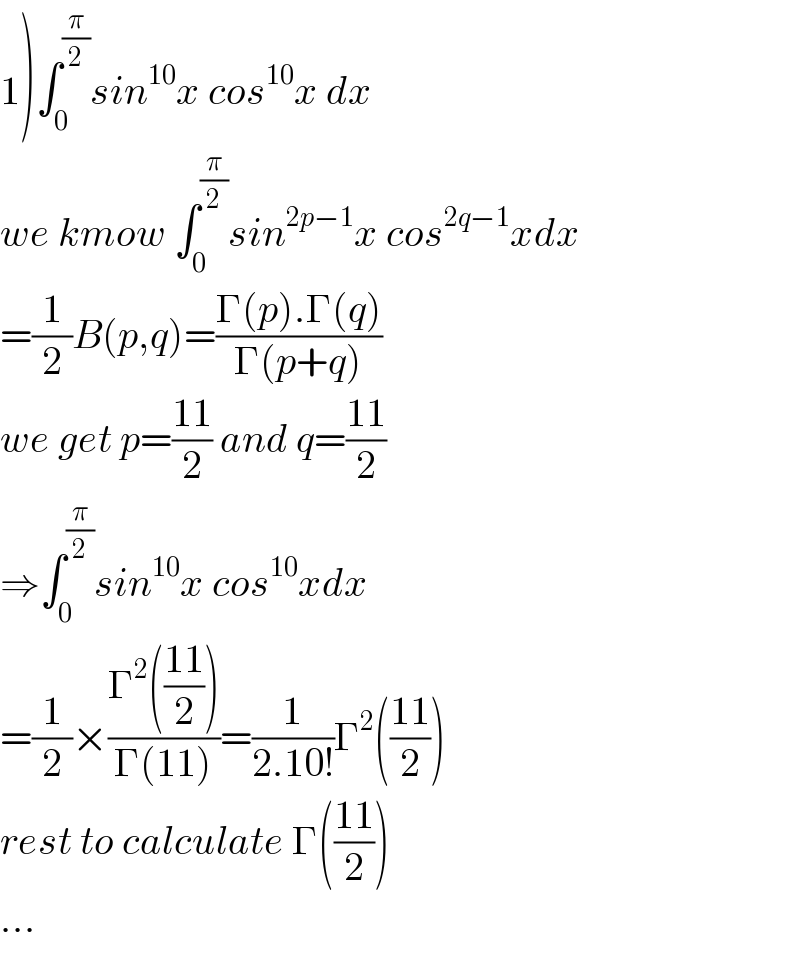
Question and Answers Forum
Question Number 174194 by mokys last updated on 26/Jul/22

Answered by Mathspace last updated on 27/Jul/22

Commented by aleks041103 last updated on 27/Jul/22

Answered by Mathspace last updated on 27/Jul/22
![3)∫_(−5) ^1 [x]dx =_(x=−5+t) ∫_0 ^6 [t−5]dt =∫_0 ^6 ([t]−5)dt =∫_0 ^6 [t]dt−30 =Σ_(k=0) ^5 ∫_k ^(k+1) kdt−30 =Σ_(k=0) ^5 k −30 =((5.6)/2)−30 =15−30=−15](Q174206.png)
Answered by Mathspace last updated on 27/Jul/22
![4) ∫_(−2) ^2 [x]dx=_(x=−2+t) ∫_0 ^4 [−2+t]dt =∫_0 ^4 (−2+[t])dt =−8+∫_0 ^4 [t]dt =−8+Σ_(k=0) ^3 ∫_k ^(k+1) kdt =−8+Σ_(k=1) ^3 k =−8+((3.4)/2)=−8+6=2](Q174207.png)
Answered by Mathspace last updated on 27/Jul/22
![2)∫_(−3) ^3 {x}dx=∫_(−3) ^3 (x−[x])dx =∫_(−3) ^3 xdx(→0)−∫_(−3) ^3 [x]dx =_(x=−3+t) −∫_o ^6 (−3+[t])dt =18−Σ_(k=0) ^5 ∫_k ^(k+1) kdt =18−Σ_(k=1) ^5 k =18−((5.6)/2)=18−15=3](Q174208.png)
